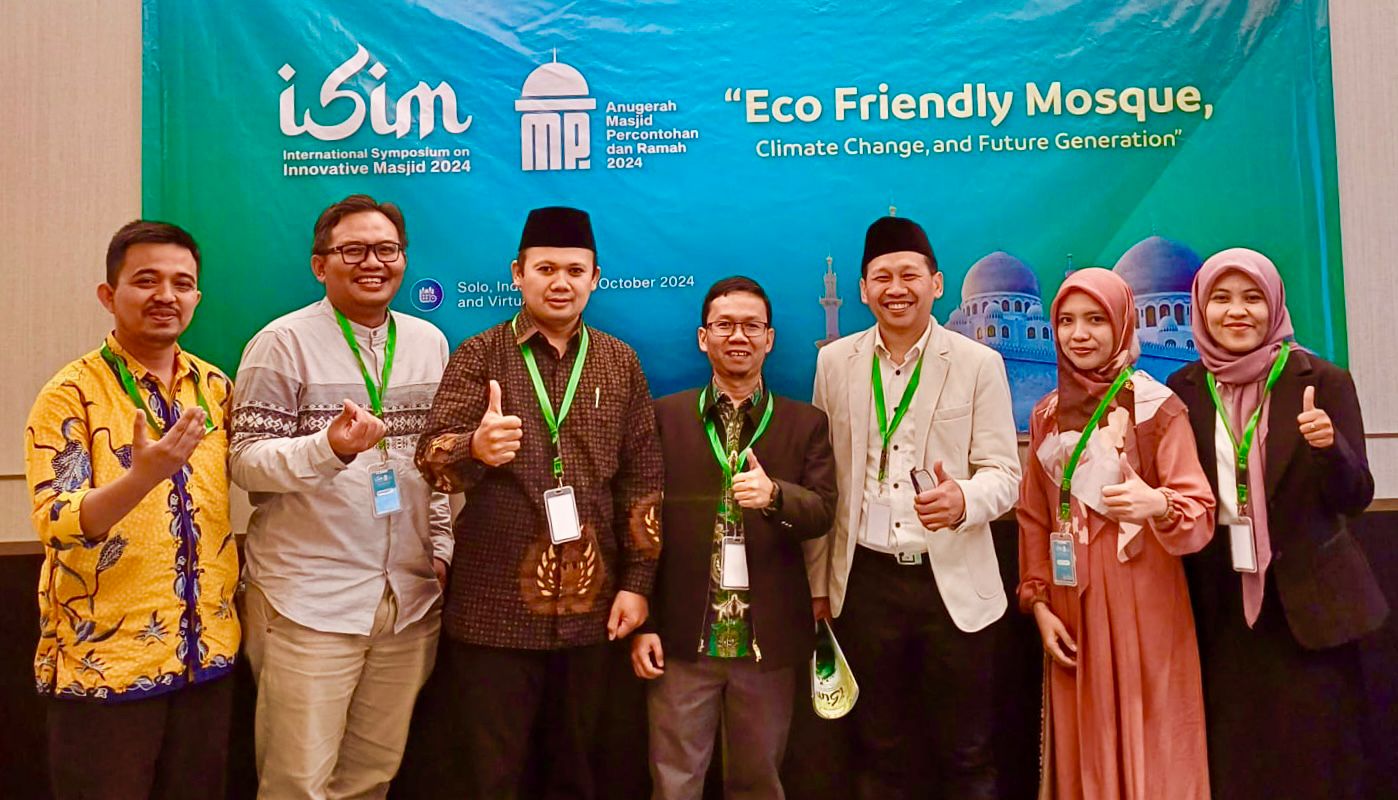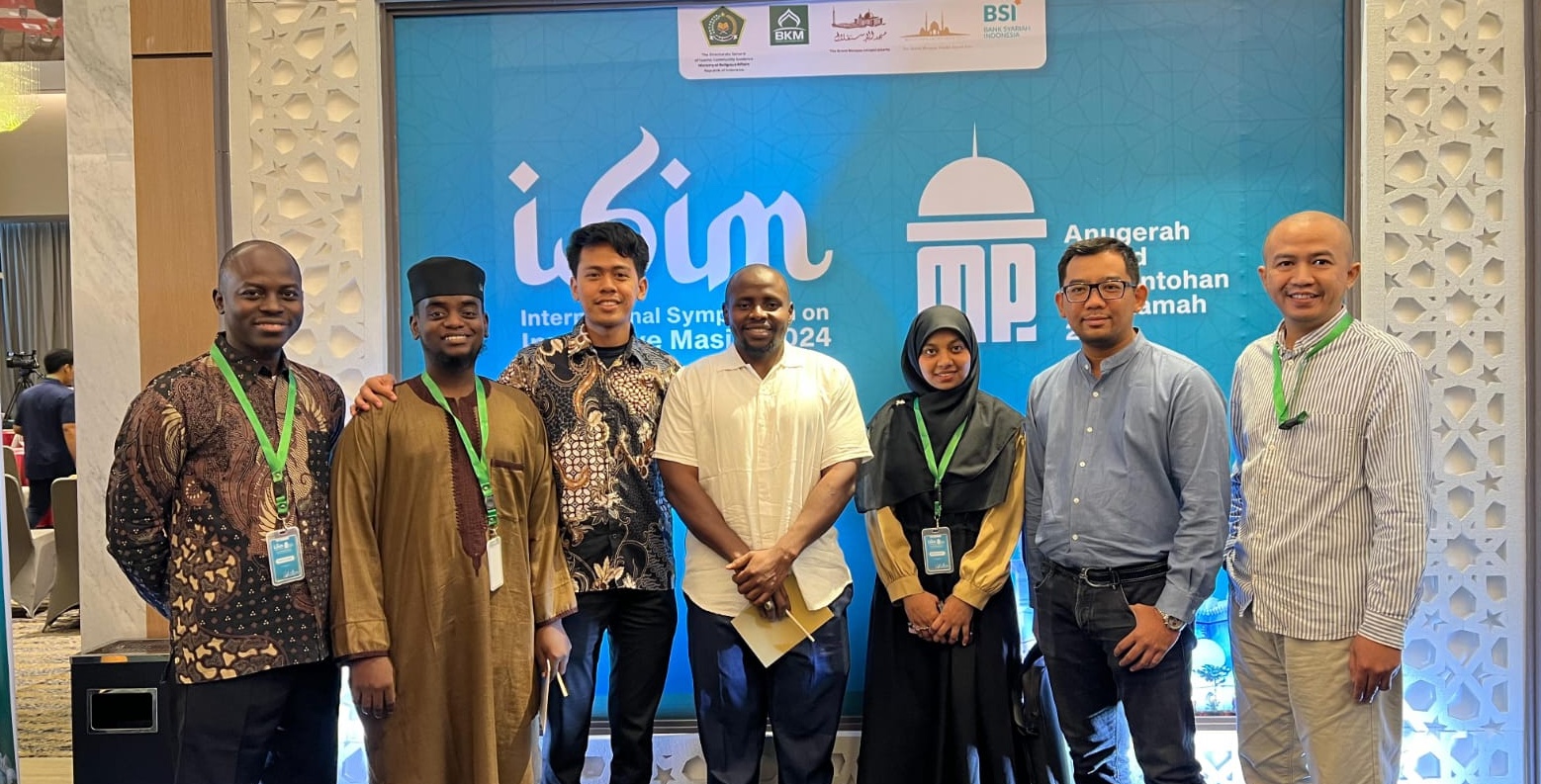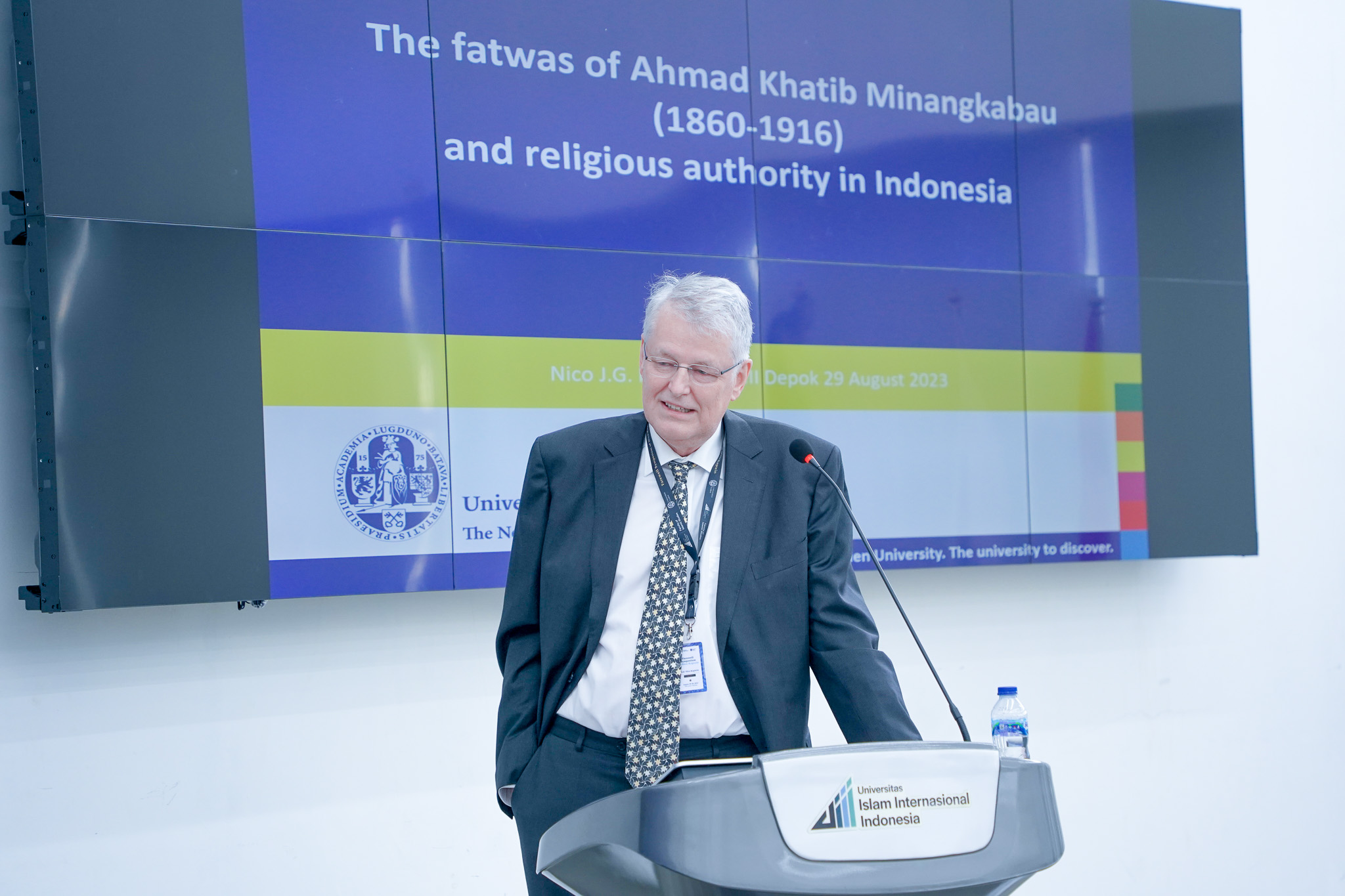UIII Lecturers Promote Eco-Friendly Mosques at MORA’s International Symposium
October 10, 2024Contributor: Supriyono | Editor: Dadi Darmadi
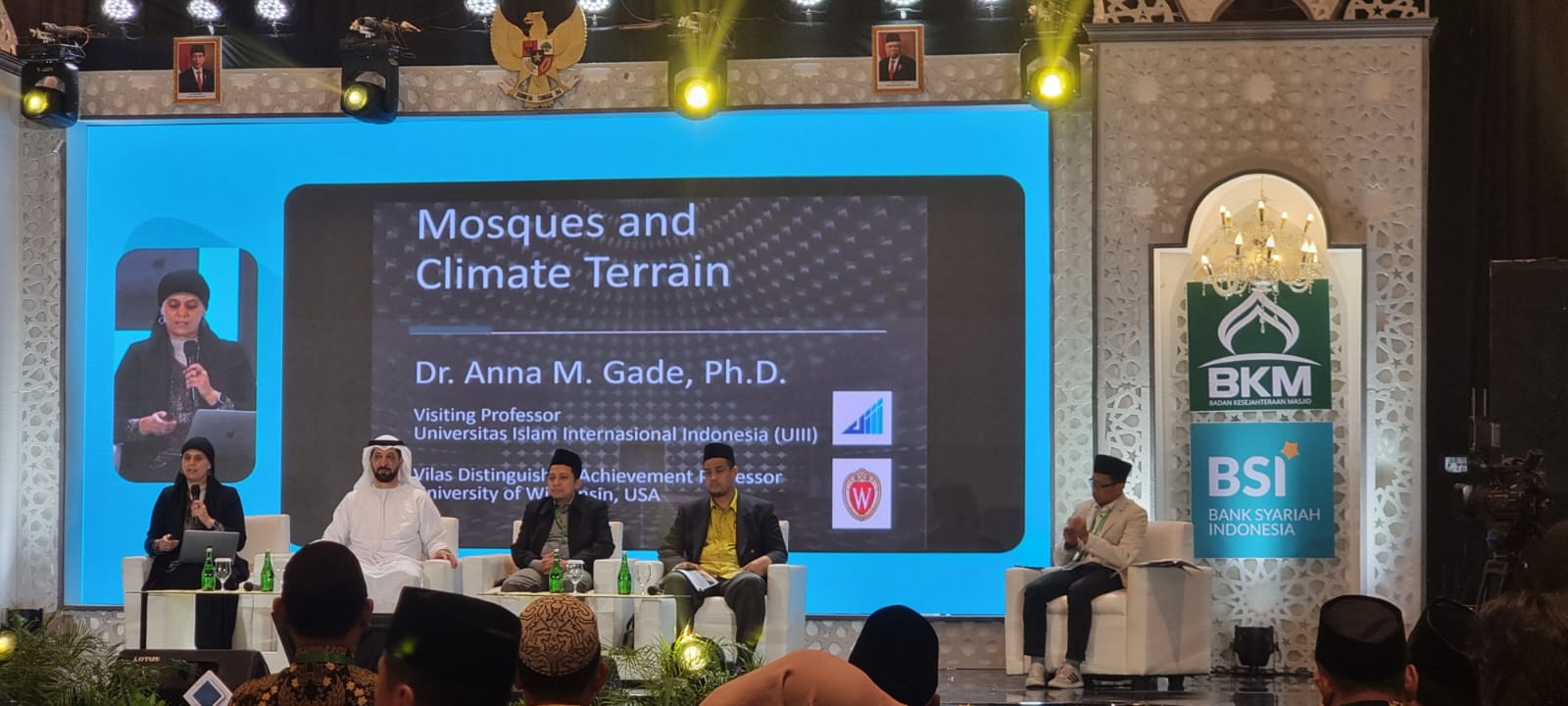
Surakarta, 1 October 2024 — To further the development of eco-friendly mosques, the Indonesian Ministry of Religious Affairs (MORA) hosted the International Symposium on Innovative Masjid (ISIM) from October 1 to 3, 2024, in Surakarta, Central Java. The event gathered international scholars, religious leaders, and experts to discuss innovations for sustainable and environmentally conscious mosques, highlighting the strategic role of religious spaces in environmental preservation.
Representing Universitas Islam Internasional Indonesia (UIII), three distinguished lecturers, namely Prof. Anna M. Gade, Dr. Muhammad Almarakeby, and Dr. Bhirawa Anoraga, shared insights on Islam and environmentalism, joining other experts from across the globe.
Prof. Anna M. Gade, a visiting professor at UIII’s Faculty of Social Sciences, spoke on “The Strategic Role of Religions, Religious Actors, and Houses of Worship on Preserving Environment.” She underscored the potential of religious communities to promote eco-friendly values, emphasizing how mosques can serve as community role models for sustainability.
Prof. Gade presented alongside Prof. Dr. Phil. H. Kamaruddin Amin, Director General of Islamic Community Guidance at Indonesia’s Ministry of Religious Affairs, Dr. Mohammad Nouh from the Mohamed bin Zayed University for Humanities in the UAE, and Dr. Muhamad Zakuwa bin Rodzali, Grand Imam of Masjid Putra in Putrajaya, Malaysia. The panel was moderated by environmental advocate Dr. Faried Saenong from the UIII Faculty of Islamic Studies.
Meanwhile, another UIII lecturer Dr. Muhammad Almarakeby from the Faculty of Islamic Studies explored “Islamic Environmentalism vs. Posthumanism: Introducing the Ummah of Animals to the Environmental Sociology.” He examined the broader ecological significance of the concept of ummah (community) beyond humans, advocating for a view that integrates the welfare of animals and ecosystems as part of Islamic environmental ethics. His talk emphasized the need to extend compassion and stewardship to all creatures, aligning Islamic environmentalism with ecological ethics.
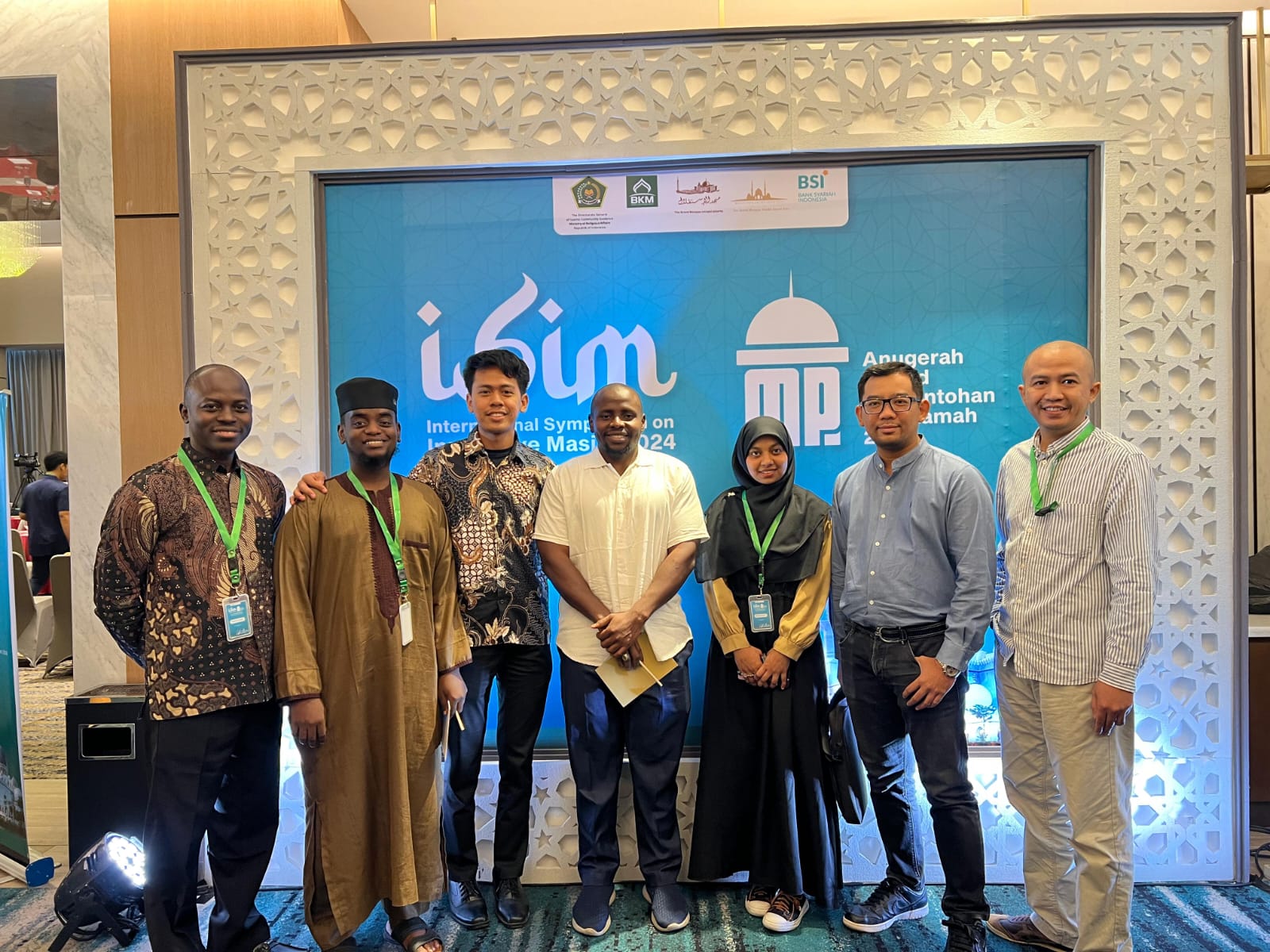
Also representing UIII, Dr. Bhirawa Anoraga presented “How Green is Green Islam? A Big Data Analysis on Muslim FBOs Instagram Accounts in Indonesia.” Utilizing digital media analytics, Dr. Anoraga analyzed Instagram content from Muslim faith-based organizations (FBOs) in Indonesia, demonstrating how social media campaigns are reshaping environmental awareness within the Muslim community. His research revealed patterns in messaging and community engagement around “Green Islam” and how these digital narratives could foster a new generation of environmentally conscious Muslims.
The symposium showcased the Ministry’s commitment to environmental responsibility through religious institutions, encouraging mosques across Indonesia to adopt eco-friendly initiatives. This mission aligns closely with UIII's vision to promote sustainability through religious perspectives, fostering an educational environment where faith and environmental stewardship intersect. UIII emphasizes that religious teachings can serve as a foundation for addressing modern challenges like climate change, inspiring Muslims worldwide to adopt sustainable practices.
- UIII Extends Application Deadline for 2025 International Admissions
- What Does Eid al-Fitr Mean for the UIII Academic Community?
- UIII PhD Scholar Ararat Kostanian Delivers Lecture at Armenia's Yerevan State University
- Swedish Ambassador to Indonesia Applauds UIII’s Vision, Explores Future Collaboration
- Depok Mayor Supports UIII as the Green Lung of Depok and Beyond
- Depok Mayor Pledges to Build Performance Hall at UIII
- New Parking Facility Launched, Part of UIII-Sentra Medika Hospital Partnership
- Yogyakarta’s UII Won 1st FisFastFest’s Clash of Campuses
- Vice Minister of Religious Affairs Praises UIII as a Global Hub for Islamic Education
- Hurray!! UIII Wins Football Championship
